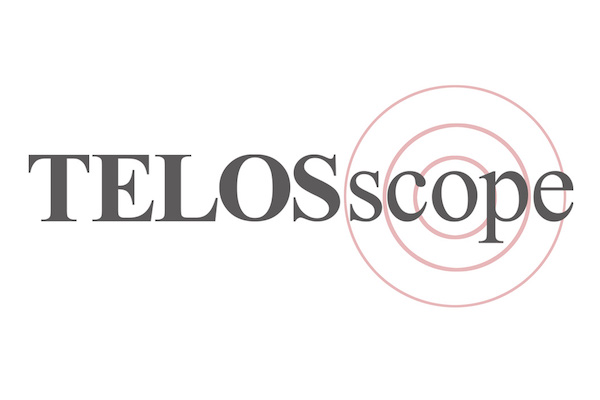By Peshraw Mohammed · Tuesday, December 3, 2024 Hamid Dabashi’s critique—or more accurately, his attack—on Hegel in the article “War on Gaza: How Hegel’s Racist Philosophy Informs European Zionism” represents an emerging trend in certain intellectual circles: dismissing European philosophy as fundamentally racist while advancing exclusionary regional ideologies, often excluding nations like Kurds and Jews by denying their identities and national aspirations. While Dabashi ostensibly raises valid concerns about colonialism and Eurocentrism, his interpretation—or more accurately, his misinterpretation—of Hegel is selective, reductive, and deeply entangled with a postcolonial hostility to the radical Enlightenment tradition embodied by thinkers such as Spinoza, Kant, and Hegel.
Drawing on the more nuanced readings of scholars like Susan Buck-Morss (who is misrepresented by Dabashi in the same article), Shlomo Avineri, and Domenico Losurdo, this response argues that Dabashi distorts Hegel’s philosophy and, in doing so, perpetuates the ideological prejudices embodied by pan-Iranism, pan-Arabism, pan-Turkism, and Islamism. Furthermore, I will explore why Hegel’s thought, as a philosophy of emancipation, holds critical significance for the self-determination of historically oppressed nations, particularly the Jews and Kurds. I begin by discussing how Dabashi misrepresents Hegel’s philosophy to advance his own chauvinistic and antisemitic agenda, while also indirectly exposing his fear toward Hegel as a thinker whose ideas could support both Kurds and Jews in their pursuit of statehood and nationality. Dabashi, an Iranian-American professor of Iranian Studies and Comparative Literature at Columbia University, frequently writes about topics such as Palestine, Israel, Kurdistan, and Iran, consistently intertwining them with Iranian nationalist chauvinism, antisemitism, and antikurdism, all disguised under the facade of progressive leftist ideas—a facade that must be unmasked.
Continue reading →
By Peshraw Mohammed · Wednesday, August 21, 2024 
The following essay originally appeared in German in Siebter Oktober Dreiundzwanzig: Antizionismus und Identitätspolitik, ed. Vojin Saša Vukadinović (Berlin: Querverlag, 2024), and appears here in English translation by permission of the author. Translated by Russell A. Berman.
 More than ever, leftists, political Islam, and postcolonial intellectuals have joined forces in an unholy alliance. Lacking an understanding of the history of Islamic expansionism, Arab colonialism, and Islamic antisemitism, parts of the Western left have come to regard any countermovement to the West as a fight against American imperialism. Therefore, the Islamic Republic of Iran and Islamist movements such as Hamas and Hezbollah are understood to be part of an anti-imperialist bloc. These tendencies were already observed in connection with the rise of the “Islamic State” (IS). When its terrorists attacked the Kurdish city of Kobanê, Kurdish militias fought IS in cooperation with U.S. forces. Some leftists in Germany, Britain, and the United States demanded that the United States stop its bombings. More than ever, leftists, political Islam, and postcolonial intellectuals have joined forces in an unholy alliance. Lacking an understanding of the history of Islamic expansionism, Arab colonialism, and Islamic antisemitism, parts of the Western left have come to regard any countermovement to the West as a fight against American imperialism. Therefore, the Islamic Republic of Iran and Islamist movements such as Hamas and Hezbollah are understood to be part of an anti-imperialist bloc. These tendencies were already observed in connection with the rise of the “Islamic State” (IS). When its terrorists attacked the Kurdish city of Kobanê, Kurdish militias fought IS in cooperation with U.S. forces. Some leftists in Germany, Britain, and the United States demanded that the United States stop its bombings.
What was the point of their demand? The United States carried out air strikes to support Kurdish ground troops in order to defeat Islamic terrorism. Failure to bomb IS positions would have resulted in IS conquering Kurdish areas in order to enslave or kill women and children. In the end, as in the case of the Yazidis, genocide could have been the outcome. The anti-Zionist cultural historian Hamid Dabashi compares the Kurds to the Jews and sees a prospective establishment of an independent Kurdistan as the “second settler-colonial Israel.”
The fixation of large parts of the left on the United States while simultaneously remaining indifferent to Russian, Chinese, Iranian, or Turkish imperialism has led to serious political misjudgments. This includes the idea that every form of Western thought, art, or literature is part of a colonial project. The works of progressive philosophers such as Rousseau, Hegel, Marx, Sartre, and even Frantz Fanon are now viewed as contributing to the reproduction of European white hegemony and are consequently rejected.
Continue reading at Telos Insights →
Continue reading →
|
|




